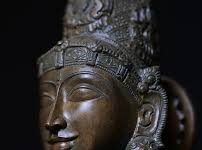
Dear Friends,
There is a particular activity in cooking—we usually call it stirring. For cooking a tasty porridge, you must know how to stir the dish properly. If not, the lower part, near the fire of the stove, will scorch and the upper part of the dish will be left uncooked. I dare to compare the functioning of literature to stirring the society.
Three of the books are translated into Telugu: Nemrmi Neela, Adholoka, and Thella Enigu. All three books are depicting the darker sides of our society and history. Yes, they have light of vision and bliss in them, but an average reader may feel them as negative realities.
Why should a writer write all these? The upper level of our society is often unaware of the lives of the lower levels. They think their life is the only reality and base their ideas on that.
There is a picture of human trade in Adholoka. People used to ask me whether it is real. We all see beggars without two legs at the pathway of temples on the top of hills. How did they reach there? So, a system exists to transport them there, and it generates profit. This is a straightforward truth, yet we often overlook it in our quest for understanding.
Like this, there are unknown pages in history. The greatest famines of human history happened in India. But we don’t know about it; we never learned anything from it. The Thella Enigu makes you live in that reality and understand the meaning of that tragedy.
Nemmi Nela enables you to live various lives in our society and gain different human experiences. The mission of real literary fiction is to stir society, ensuring that the upper levels cannot comfortably ignore the lower levels.
Jeyamohan
A brief note submitted to the Hyderabad Central University conference regarding my books.












